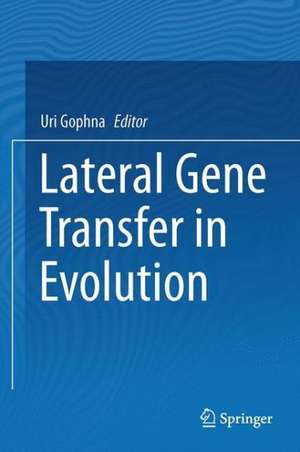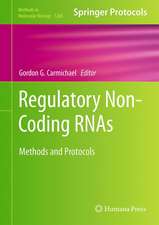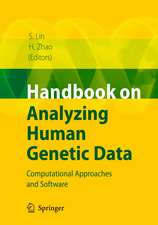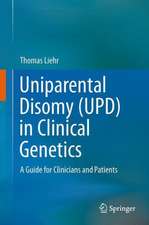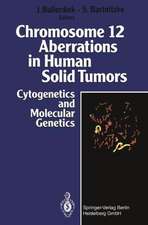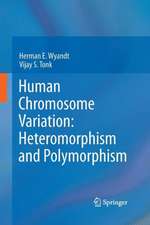Lateral Gene Transfer in Evolution
Editat de Uri Gophnaen Limba Engleză Hardback – 19 iul 2013
| Toate formatele și edițiile | Preț | Express |
|---|---|---|
| Paperback (1) | 1076.49 lei 6-8 săpt. | |
| Springer – 5 aug 2015 | 1076.49 lei 6-8 săpt. | |
| Hardback (1) | 1081.73 lei 6-8 săpt. | |
| Springer – 19 iul 2013 | 1081.73 lei 6-8 săpt. |
Preț: 1081.73 lei
Preț vechi: 1138.66 lei
-5% Nou
Puncte Express: 1623
Preț estimativ în valută:
207.08€ • 212.97$ • 171.80£
207.08€ • 212.97$ • 171.80£
Carte tipărită la comandă
Livrare economică 20 februarie-06 martie
Preluare comenzi: 021 569.72.76
Specificații
ISBN-13: 9781461477792
ISBN-10: 1461477794
Pagini: 308
Ilustrații: XI, 294 p.
Dimensiuni: 155 x 235 x 22 mm
Greutate: 0.57 kg
Ediția:2013
Editura: Springer
Colecția Springer
Locul publicării:New York, NY, United States
ISBN-10: 1461477794
Pagini: 308
Ilustrații: XI, 294 p.
Dimensiuni: 155 x 235 x 22 mm
Greutate: 0.57 kg
Ediția:2013
Editura: Springer
Colecția Springer
Locul publicării:New York, NY, United States
Public țintă
ResearchCuprins
Part I: LGT-Driven Metabolic Innovations and Adaptations.- Lateral Gene Transfer and the Synthesis of Thymidine.- Lateral Gene Transfer and the Evolution of Photosynthesis in Eukaryotes.- On the Eco-evolutionary Relationships of Fresh and Salt Water Bacteria and the Role of Gene Transfer in their Adaptation.- Mobilized Integrons: Team Players In The Spread of Antibiotic Resistance Genes.- Plasmids of the bovine Rumen.- Part II: The Integration of New Genes into Existing Networks.- Lateral Gene Transfer and Cellular Networks.- The Complexity Hypothesis and Other Connectivity Barriers to Lateral Gene Transfer.- How Codon Usage Shapes Gene Transfer and Vice Versa.- Part III: Inter-domain Gender Transfer.- Lateral Gene Transfer in Animals.- Gene Transfer and the Chimeric Nature of Eukaryotic Genomes.- Gene transfer from Eukaryotes to Legionella.- Application of a new Mapping Algorithm to Reevaluate Evidence of Interdomain Horizontal Gene Transfer in the Genome of Thermotoga Maritime.- Part IV: LGT, Speciation and the Tree/Web of Life.- Gradual Speciation and its Implications for the Tree of Life.- Biased Gene Transfer Contributes to Maintaining the Tree of Life.- Speciation in the Shadow of Recombination and Lateral Gene Transfer.- Index.
Textul de pe ultima copertă
Although the phenomenon of lateral gene transfer has been known since the 1940s, it was the genomics era that has really revealed the extent and many facets of this evolutionary/genetic phenomenon. Even in the early 2000s with but a handful of genomes available, it became clear that the nature of microorganisms is full of genetic exchange between lineages that are sometimes far apart. The years following this saw an explosion of genomic data, which shook the "tree of life" and also raised doubts about the most appropriate species concepts for prokaryotes. This book represents the manyfold contributions of LGT to the evolution of micro and, to an extent, macroorganisms by focusing on the areas where it has the largest impact: metabolic innovations and adaptations and speciation.
Caracteristici
Focuses on the spectrum of adaptive innovations generated by Lateral Gene Transfer in evolution Looks at the genomic, metabolic and ecological levels Examines the integration of new genes into existing networks Includes supplementary material: sn.pub/extras
